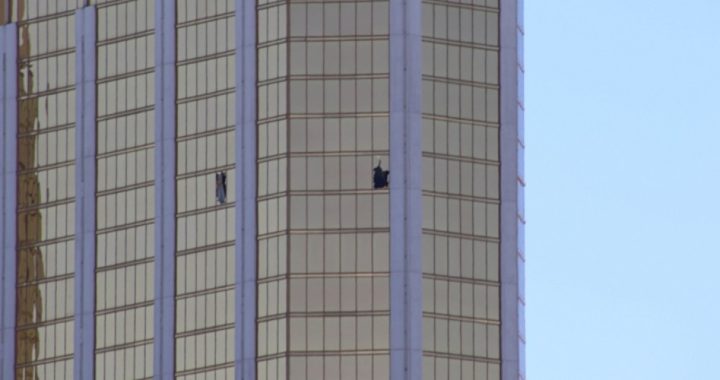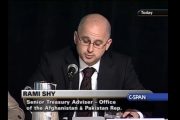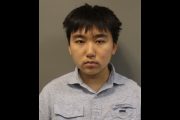
Las Vegas shooter Stephen Paddock starting shooting at exactly 10:08 p.m. on Sunday night. A SWAT team entered his room at 11:21 p.m., reporting that Paddock had taken his own life just moments before. That’s 73 minutes between the start of the shooting and the shooter’s demise.
Chris Bethel, an Iraq War veteran, was in his room just two floors below when he heard the gunfire erupt and called the front desk, but no one answered. Said Bethel, “I could just hear the gun shots, continuously. Just full automatic. There [were] explosions going off. It was like a bomb just went off. And then there were more gun shots. Seconds are going by, minutes are going by, the rounds are continuously going [off]. Changing weapons, changing calibers, you can hear the difference in the gun shots.”
That he couldn’t reach anyone at the front desk frustrated Bethel: “I feel like I didn’t do enough. I feel like I couldn’t get a hold of somebody quick enough to let them know. And it felt like it took them too long to get over there, to take him out.”
Paddock fired on the concert attendees for between nine and 11 minutes, in about a dozen different bursts, according to witnesses. That meant that he stopped firing at about 10:28 p.m. At 10:37 p.m. local officers reported that they were moving up to the 32nd floor. At 10:55 p.m., one of the local officers said they were ready to enter the shooter’s suite of rooms, but he was told to wait for the SWAT team. Twenty-six minutes later, at 11:21 p.m., the SWAT team entered Paddock’s suite to find him dead of a self-inflicted gunshot wound.
Newsweek also asked why it took so long for officers to enter Paddock’s room, saying only, “It’s unclear why officers waited more than an hour to enter the gunman’s room…. It’s also unclear when Paddock stopped shooting.” An expert that Newsweek consulted didn’t have a good answer either: “I’m not sure why it took so long. Your first priority is stopping the shooting and getting to the suspect.”
Clark County Sheriff Joseph Lombardo said that when local officers arrived at Paddock’s room they “received gunfire and they backed off and SWAT responded.” Another source said it was possible that the officers didn’t feel capable of stopping the attack on their own because of Paddock’s high-powered automatic weapons.
That’s just one of many still-unanswered questions about the massacre.
At least one question has been answered: Paddock was alone. YouTube videos showing gunfire emanating from a room on the fourth floor of the hotel were labeled “false” by Snopes.
First, said Snopes, Assistant Sheriff Todd Fasulo said so: “I want to emphasize we believe Paddock is solely responsible for this heinous act. We are aware of the rumors outside of the media and also on social media that there was more than one assailant. We have no information or evidence to support that theory, or that rumor.” Second, none of the windows on the fourth floor of the hotel had been broken out. Third, the light flashing from the fourth floor had been seen flashing at least an hour before the shooting started. Snopes noted that one of the officers on the scene also saw the winking light and called it a strobe light. Finally, said Snopes, “it defies logic to believe they [law enforcement] would not have heard automatic gunfire coming from the fourth floor, when they clearly heard it coming from Paddock’s room [on the 32nd floor].”
Another question was raised by Sheriff Lombardo: “Did this person get radicalized unbeknownst to us? [If so] we want to identify that source.”
Why was Paddock essentially declared “clean” when law enforcement, in their initial investigation, found nothing in his background. Especially when it was later learned that Paddock worked for the federal government and would have created a large personnel file. He worked as a postman, an IRS agent, and then for government contractor Lockheed Martin. Why wasn’t that information instantly available? Isn’t the U.S. a “surveillance state” where the federal government is watching everyone, everywhere, all the time and keeping records?
And what about Paddock’s girlfriend, Marilou Danley? The police initially said she was not a “person of interest” but later changed and declared her a “person of interest.” Danley was taken into custody early Wednesday morning for “questioning” by federal officials.
Who warned concert-goers about the impending attack? An interview with a concert attendee, Brianna Hedricks, revealed that a woman “who pushed her way forward into the concert venue and into the first row and started messing with another lady, and told us we were all going to die tonight.” Security officials removed her from the premises, along with a man. Who was he? Where did she/they go afterwards?
Was Paddock on drugs? According to the Las Vegas Review-Journal, he “was prescribed an anti-anxiety drug in June [diazepam] that can lead to aggressive behavior.” Diazepam is commonly known as Valium, which DrugAbuse.com warns can trigger “aggressive behavior” and “psychotic experiences.”
Radio host Alex Jones shed some light on this, writing that “virtually every major mass shooter was taking some form of … pharmaceutical drug at the time of their attack, including Columbine killer Eric Harris, ‘Batman’ shooter James Holmes, Charleston shooter Dylann Roof and Sandy Hook gunman Adam Lanza.”
Another question has come up. Paddock reportedly rented his room on Thursday, September 28, but a hotel employee named Antonio claims he served Paddock and a guest in the room the day before (September 27). Paddock and his guest ordered a burger, a bagel with cream cheese, potato soup, one bottle of water, and two Pepsis. Antonio posted a copy of the room service receipt on his Facebook page which clearly showed the number “2” next to the word “Guests” right up until the post was taken down.
Finally, there is one more remarkable coincidence. The day after the shooting, House Speaker Paul Ryan announced that he was backing out of voting for two bills that were on the House floor: A bill to lesson restrictions on gun suppressors and the national concealed-carry reciprocity bill. Both bills were expected to pass.
Photo of Mandalay Bay Hotel in Las Vegas showing broken windows on 32nd floor used during shooting: AP Images
An Ivy League graduate and former investment advisor, Bob is a regular contributor to The New American magazine and blogs frequently at LightFromTheRight.com, primarily on economics and politics. He can be reached at [email protected].



